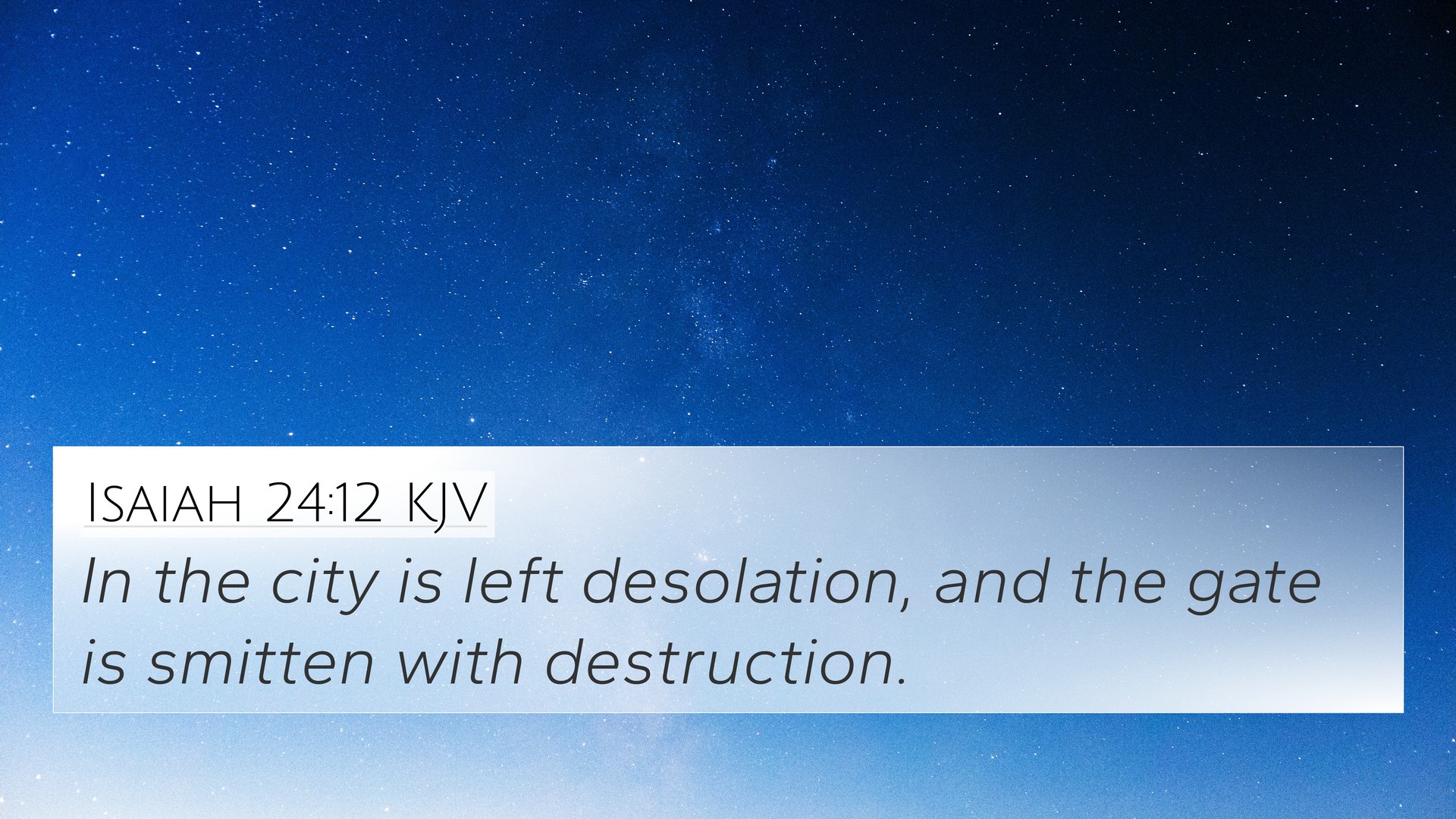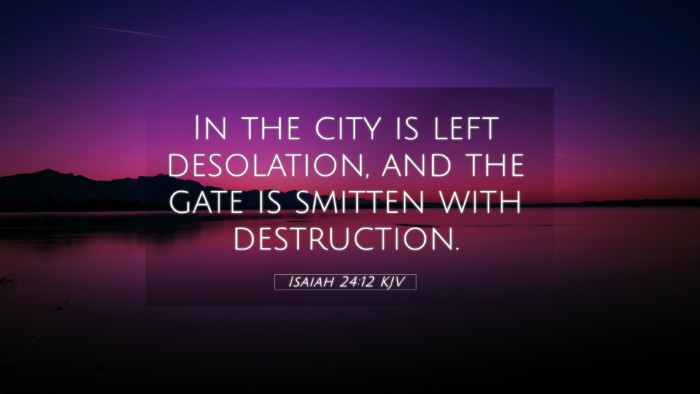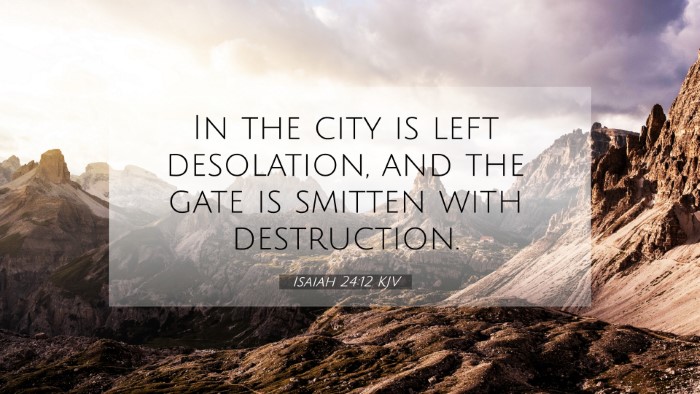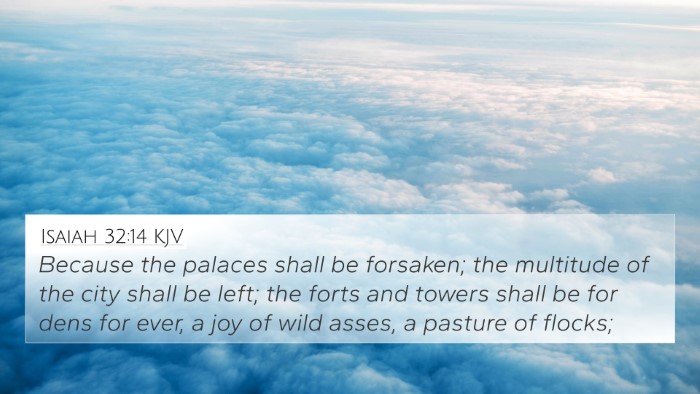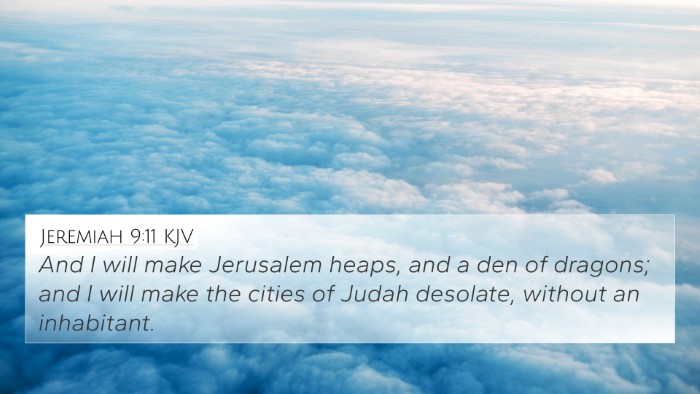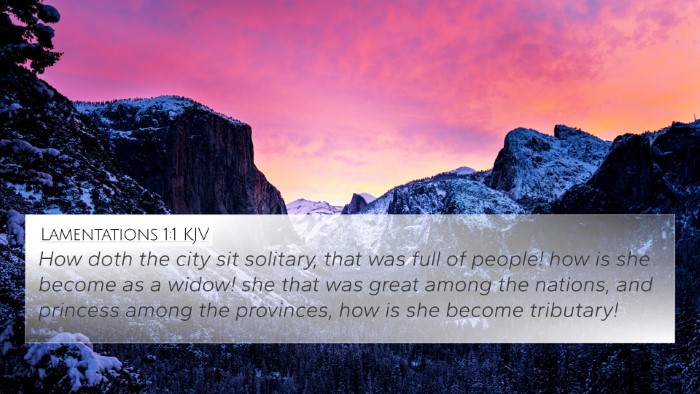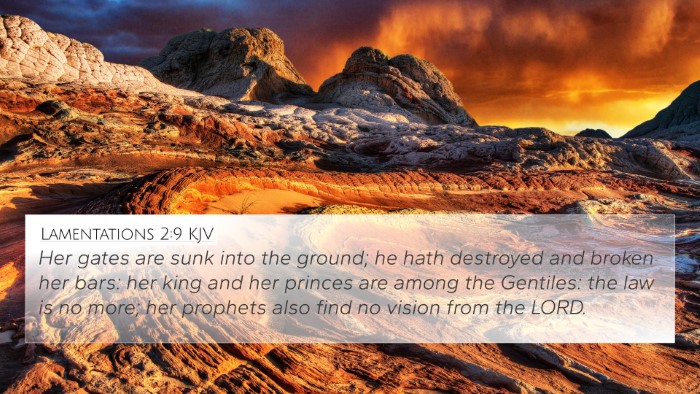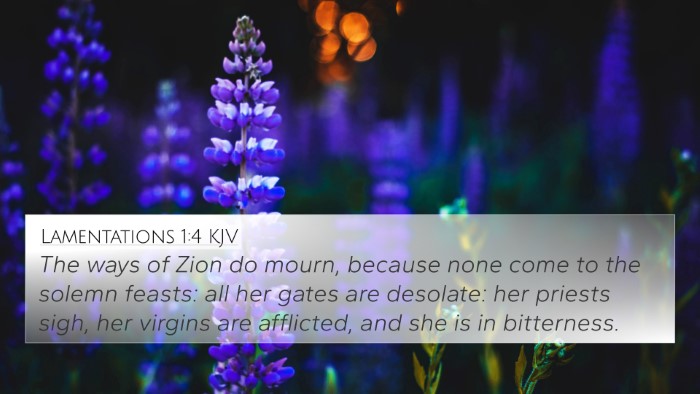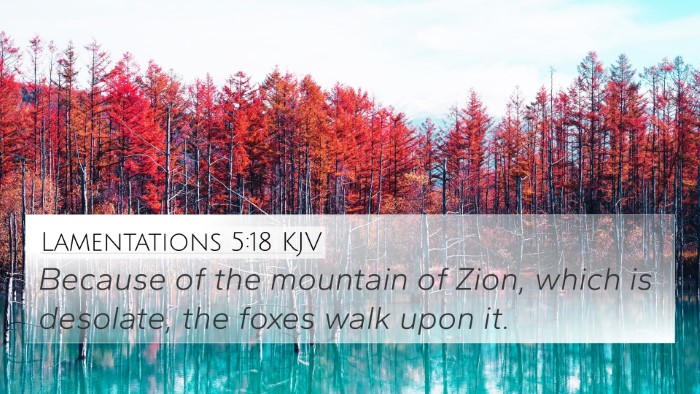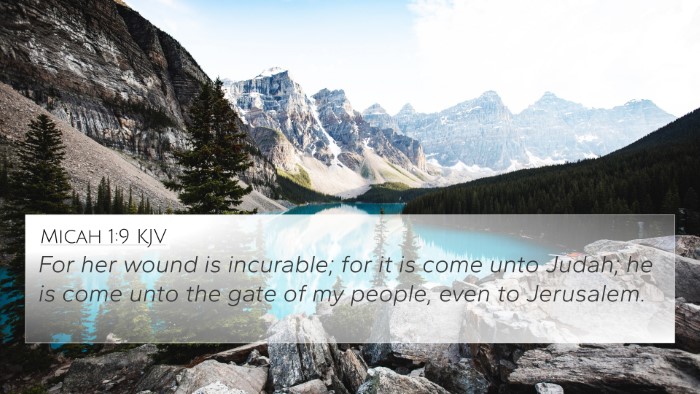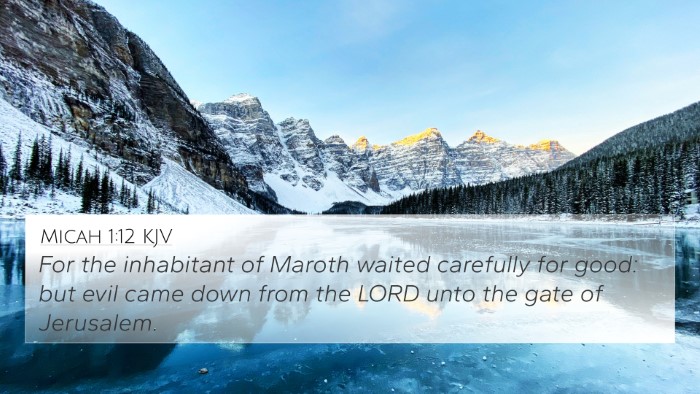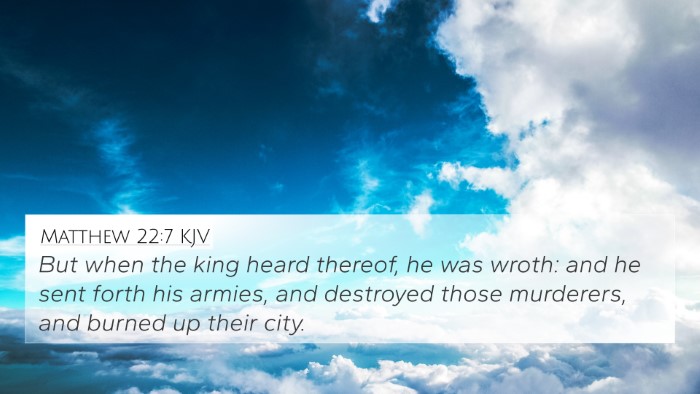Understanding Isaiah 24:12
Isaiah 24:12 states: "In the city is left desolation, and the gate is smitten with destruction." This verse captures the somber tone of judgment pronounced upon the earth and Jerusalem. To gain a clearer understanding, we can draw from various public domain commentaries, including insights from Matthew Henry, Albert Barnes, and Adam Clarke. Below is a comprehensive analysis that links this passage to other relevant scripture for better insight.
Context and Meaning
Isaiah is known for his vivid prophetic imagery, frequently discussing the themes of judgment and restoration. In chapter 24, he illustrates the desolation of the entire earth due to sin and God's wrath, which culminates in a portrayal of ruin in Jerusalem.
Key Insights from Commentaries
- Matthew Henry: Henry emphasizes that the verse denotes serious devastation, a city left desolate represents a complete turning away from God's favor. He asserts that the gates symbolize both authority and protection, and their destruction denotes the loss of security and governance.
- Albert Barnes: Barnes interprets this desolation as part of God’s judgment on a rebellious world. He indicates that the concept of a ‘city’ here can extend beyond literal Jerusalem to signify any society that falls into corruption and idolatry.
- Adam Clarke: Clarke provides a historical context, pointing out that this prophecy reflects the reality faced by nations that turn their backs on divine direction. He further suggests that the desolation serves as a warning to others about straying from righteousness.
Cross-References of Isaiah 24:12
Understanding Isaiah 24:12 can be greatly enhanced by looking at interconnections with other scripture. Below are notable cross-references:
- Lamentations 1:1: "How doth the city sit solitary, that was full of people!" - Connections highlight the sadness of Jerusalem's fall.
- Revelation 18:2: "Babylon the great is fallen, is fallen..." - A prophetic parallel showing the inevitable collapse of sinful cities.
- Isaiah 1:7: "Your country is desolate, your cities are burned with fire..." - An earlier representation of desolation foreshadowing future judgments.
- Jeremiah 9:11: "And I will make Jerusalem heaps, and a den of dragons..." - A striking similarity in theme of desolation and ruin.
- Micah 1:6: "Therefore I will make Samaria as a heap of the field..." - Illustrates God's judgment upon cities and nations.
- Ezekiel 7:2-3: "An end, the end is come upon the four corners of the land..." - The certainty of judgments against the people.
- Matthew 24:2: "There shall not be left here one stone upon another..." - Jesus reiterates the judgment upon Jerusalem, drawing parallels to Isaiah's prophecies.
- Psalm 74:3: "Lift up thy feet unto the perpetual desolations; even all that the enemy hath done wickedly in the sanctuary." - There is a lament over desolation caused by enemies.
- Zephaniah 1:18: "Neither their silver nor their gold shall be able to deliver them in the day of the Lord's wrath..." - Emphasizes moral decay and the futility of riches against divine wrath.
- 2 Peter 3:10: "But the day of the Lord will come as a thief in the night..." - Affirms that all of creation will meet divine judgment.
Thematic Bible Verse Connections
This verse ties deeply into themes of divine judgment, societal corruption, and the eventual restoration following desolation. The loss of protection and authority signifies a broader spiritual truth about the consequences of sin.
Tools for Bible Cross-Referencing
When studying scriptures and seeking to deepen understanding of passages like Isaiah 24:12, utilizing various tools for Bible cross-referencing can be immensely helpful:
- Bible Concordance – a resource for locating words and themes across various texts.
- Bible Cross-Reference Guide – assists in tracing connections between verses.
- Cross-Reference Bible Study – an effective method for understanding scripture in context.
- Bible Reference Resources – aids in compiling and organizing similar verses.
- Bible Chain References – helps in building a web of interconnected themes.
Conclusion
Isaiah 24:12 serves as a sobering reminder of the consequences of turning away from God. Through careful study, cross-referencing, and thematic connections, believers can grasp the fullness of the message contained in this verse. The insights from commentaries highlight the severe implications of desolation not only anticipated in ancient times but also relevant for contemporary spiritual reflections.
Final Reflections
As you explore the depths of Isaiah 24:12 and its connections to broader biblical themes, consider embarking on a comprehensive Bible study. Engage with cross-referenced themes to build a robust understanding of God's continual narrative through His Word.
